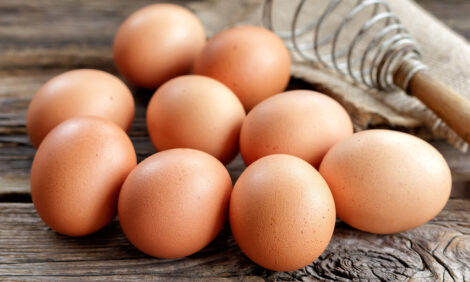



European Commission Report Confirms Benefits of Ban on Battery Cages
There is substantial evidence that banning the use of conventional battery cages for laying hens could considerably improve the health and welfare of these birds, according to a report published by the European Commission.* "The Directive gave farmers a very generous 12 years to move away from battery cages. It’s a scandal that the industry has been pressing for even more time." |
|
Peter Stevenson, Chief Policy Advisor at Compassion in World Farming
|
An EU ban on conventional battery cages is due to enter into force from 2012, in line with Directive 1999/74/EC on minimum standards for laying hens, and the report concludes that the 2012 deadline should be maintained.
However, amny farming organisdations across Europe have called for more time before the cages are banned completely.
And this has led to con demnation from the animal welfare organisation, Compassion in World Farming.
Peter Stevenson, Chief Policy Advisor at Compassion in World Farming said: "The Directive gave farmers a very generous 12 years to move away from battery cages. It’s a scandal that the industry has been pressing for even more time.
"Now that the Commission has ruled that there should be no delay, we hope the egg industry will stop fighting the ban and belatedly knuckle down to getting their hens out of cages and into barn and free range systems."
* "The Commission listened to the demands of EU consumers and has taken concrete action to improve the welfare of laying hens." |
|
Markos Kyprianou, Commissioner for Health
|
Markos Kyprianou, Commissioner for Health, said, "The Commission listened to the demands of EU consumers and has taken concrete action to improve the welfare of laying hens. The report today shows that there is scientific and economic support for the ban on conventional battery cages. We are maintaining the deadline of 2012 for banning conventional battery cages, as there is no reason to postpone it. I urge operators to start phasing out the use of these cages as soon as possible so that there is full compliance with the EU ban by the deadline of 2012."
Banning Conventional Battery Cages
Directive 1999/74/EC on minimum standards for the protection of laying hens states that, from 1 January 2012, the rearing of laying hens in conventional (known as 'unenriched') cages will be prohibited in the EU. From that date, laying hens will only be allowed to be reared in enriched cages or using alternative systems such as barn or free range. Enriched cages must allow at least 750 cm2 per hen, and contain a nest, litter, perch and clawing-board. Farmers and operators were given a long transitional period to adjust to this measure, and the Commission has been following the progress of Member States in implementing the provisions of the Directive. All Member States have been urged to step up their efforts in the phasing out of conventional cages, so as to be in full compliance with this requirement within the deadline.
Animal Health and Welfare Benefits
Any new EU legislative measure should be based on the latest scientific data and advice. Therefore, the Commission requested that the European Food Safety Authority (EFSA) assess the impact that the various housing systems for laying hens have on the health and welfare of these birds. In its Opinion of November 2004[1], EFSA stated that keeping laying hens in unenriched cages increased the risk of disease, bone breakage, harmful pecking, behavioural problems and mortality.
"LayWel", an EU-funded research project, also confirmed that unenriched cages present serious animal welfare problems and that there were clear benefits in changing to enriched caging or alternative systems.
Economic Considerations
The Commission report also examines the economic implications of banning unenriched cages, taking into account concerns expressed by certain producers. Drawing on the findings of an Agra-CEAS study on the socio-economic consequences of the various systems for rearing hens, and on a study commissioned by the industry, the report concludes that the cost of switching to enriched cages could be less than 1 cent per egg.
However, the higher animal welfare standards can serve as a valuable selling point for EU producers.
It is extremely difficult for European farmers to compete with their counterparts in certain third countries on production costs alone. However, EU producers can have a competitive advantage by applying better animal welfare standards and delivering high quality goods.
There is clearly a growing market for animal welfare friendly products.
Recent Eurobarometer surveys on consumer attitudes to animal welfare revealed that the majority of respondents would be willing to pay more for eggs sourced through animal welfare friendly production systems. Agra CEAS research revealed a steady increase in the consumption of table eggs from non-caged hens in many of the EU-15 Member States, while over the past two years, the amount of free range eggs sold by a cross section of the top British retailers has almost doubled, and this trend looks set to continue.
Therefore, the mandatory requirement to improve housing systems for laying hens offers EU producers a competitive advantage over third country producers by meeting a growing consumer demand for welfare-friendly eggs.








